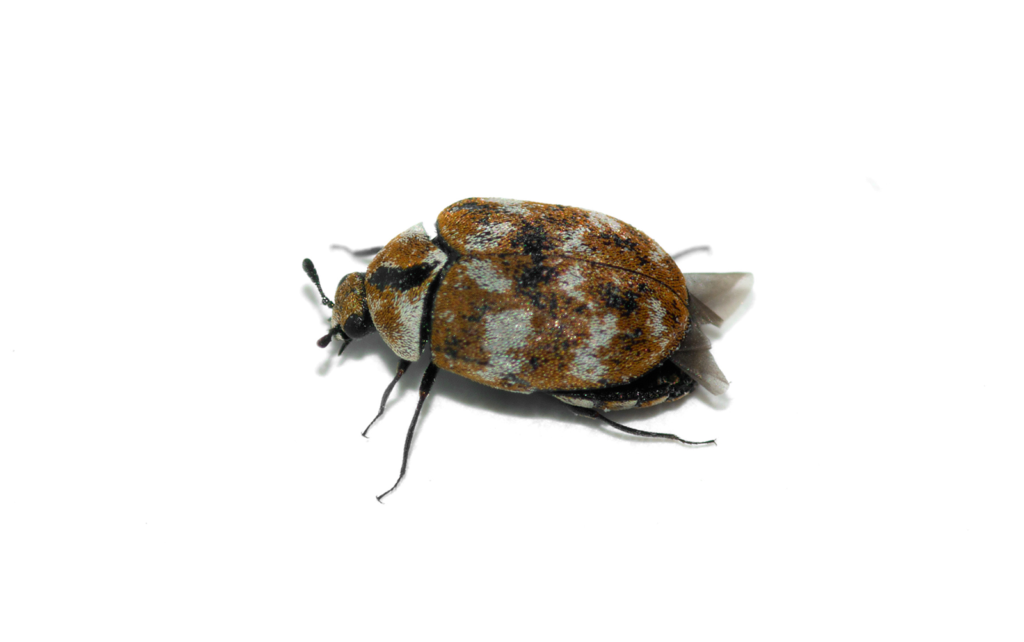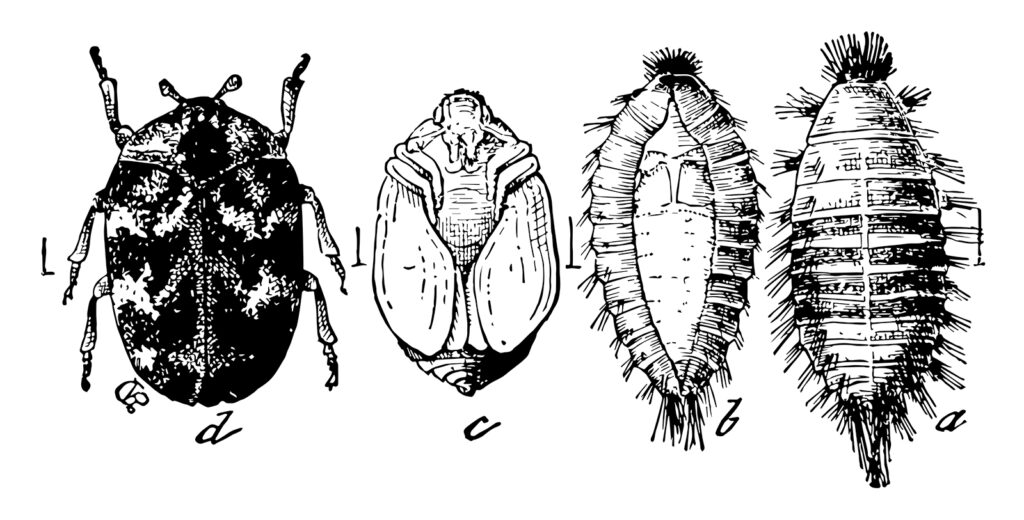Carpet Beetles
Appearance
Carpet beetles are small, oval-shaped insects that range in size from 1/16 to 1/8 inch long. They can vary in color from black, brown, or white to a combination of these colors. The larvae of carpet beetles are elongated and hairy, with a tapered shape at both ends and grow up to ¼ inch long.
Carpet Beetle Lifecycle
The lifecycle of carpet beetles begins when an adult female lays her eggs. Carpet beetles can lay their eggs indoors, although they may also infest the nests of birds, mice, and other insects. After mating near sources of light, females can lay more than 100 eggs at a time, which will hatch into larvae within seven to 35 days. The larvae will then feed on the surrounding materials, including carpets, furniture, and clothing. The larvae go through several molts before they pupate and emerge as adults.
Habits Of Carpet Beetles
Carpet beetles are attracted to light and are often found around windows. Adult females lay eggs on lint around baseboards, carpet edges, cracks, in ducts, on mouse carcasses, or in similar situations.
Carpet beetles prefer to feed on natural materials, such as wool, silk, fur, feathers, and leather. They may also feed on synthetic materials contaminated with food or body oils.
Damage Caused By Carpet Beetles
The larvae of carpet beetles chew through fabrics, leaving behind irregular holes or damaged areas. They can also cause damage to natural history collections, including bird nests, taxidermy, and insect collections.
In severe cases, carpet beetle infestations can cause significant damage to carpets, furniture, and clothing.
Prevention and Control of Carpet Beetles
Preventing a carpet beetle infestation can save time and money in the long run. Prevention and control requires a combination of sanitation, exclusion, and insecticide treatments.
Let Killroy Pest Control Help You
Carpet Beetle Prevention
Regular Vacuuming
Vacuuming your carpets and floors is one of the most effective ways to prevent carpet beetles. Vacuum under furniture, in closets, and along baseboards.
Seal Cracks and Openings
Prevent carpet beetles from entering in the first place. Check for cracks in walls, around doors and windows, and in the foundation. Use caulk or sealant to seal openings.
Clean Up Messes
Carpet beetles are attracted to food sources such as spilled grains, flour, and dead insects. Cleaning up messes can help prevent an infestation.
Store Clothing Properly
Properly storing clothing by using plastic storage containers or bags, and avoid storing items in cardboard.
Carpet Beetle Control
If you already have a carpet beetle infestation, it’s important to take immediate action!
Insecticide Spray
Be sure to choose a spray that is specifically labeled for carpet beetles and follow the instructions. It’s important to spray all areas of the home where carpet beetles may be hiding, including closets, under furniture, and in the attic.
Professional Extermination
If the infestation is severe, hire a professional exterminator to eliminate the problem. They provide a more targeted approach and ensure that all areas of the home are treated.









